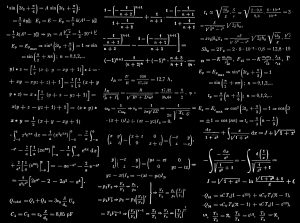What is Abacus? Mastering the Power of Abacus Maths for Your Child’s Success

Do you find yourself worrying about your child’s struggles with mathematics? Are you searching for an effective method to enhance their mathematical skills? Look no further! Abacus maths is here to revolutionize your child’s learning experience and unleash their true potential in mathematics. In this comprehensive guide, we will explore the basics of abacus maths, its benefits, and how it can transform your child’s mathematical abilities. Get ready to embark on an exciting journey of discovery!
What is an Abacus? Understanding the Basics
Have you ever wondered what an abacus actually is? The abacus is a traditional counting tool that has been used for thousands of years to perform arithmetic calculations. Derived from the Latin word “abacus” meaning a calculating table, it consists of a rectangular frame with rods or wires on which beads are strung. These beads can be manipulated to represent numbers and perform various calculations.
The abacus typically features two sections: an upper deck and a lower deck, separated by a horizontal beam. Each vertical rod represents a different place value, such as ones, tens, hundreds, and so on. The beads on the lower deck usually represent single units, while those on the upper deck represent multiples of five.
Types of Abacus around the World
Abacuses come in various forms across different cultures. Let’s explore some notable types of abaci:
-
Chinese Abacus (Suanpan): The Chinese abacus is one of the most well-known types. It features five beads in the lower section and two beads in the upper section, allowing for calculations up to 16 different numbers.
-
Japanese Abacus (Soroban): The Japanese abacus is another popular variant. It has four beads in the lower section and one bead in the upper section, representing numbers from 0 to 9.
The Power of Abacus Maths
Now that we understand the basics of an abacus, let’s delve into the incredible power of abacus maths for your child’s development.
Enhancing Problem-solving Skills: Abacus maths promotes critical thinking and problem-solving abilities in children. Manipulating the beads encourages them to think logically and find solutions to mathematical problems.
Improving Mental Calculation Speed: By using an abacus, children develop the ability to perform mental calculations quickly and accurately. This skill not only strengthens their math abilities but also boosts their confidence.
Developing Concentration and Observational Skills: Learning to use an abacus requires focus and concentration. As children practice manipulating the beads, they develop enhanced observational skills and improved attention spans.
Building Confidence in Handling Numbers: Abacus maths provides a hands-on approach to learning mathematics. As children gain proficiency in using the abacus, they develop confidence in handling numbers, making math less intimidating.
Abacus Training and Education
Abacus training is often structured in levels, gradually increasing in complexity as learners become more proficient. Regular practice is essential for mastering the techniques and improving calculation speed. Let’s explore some key aspects of abacus training:
-
Structured Curriculum: Abacus training programs follow a structured curriculum divided into Junior, Foundation, Advanced, and Grand Master modules. Each level builds upon the previous one, gradually introducing more complex calculations.
-
Small Class Sizes: Abacus classes typically have small student-to-teacher ratios, allowing for personalized attention. This ensures that each child receives individualized instruction and support.
-
Fun and Interactive Learning: Abacus training incorporates fun learning techniques to engage children. Interactive software, lesson plans, and materials designed specifically for young learners make the learning process enjoyable and exciting.
Benefits of Abacus Maths for Your Child
The benefits of abacus maths extend far beyond just improving mathematical skills. Let’s explore how abacus education can positively impact your child’s overall development:
-
Strong Mental Math Abilities: Abacus maths enables children to perform complex calculations mentally. This skill not only saves time but also enhances their overall mathematical abilities.
-
Improved Focus and Concentration: Learning to use an abacus requires focus and concentration. Regular practice helps children improve their attention spans, which can benefit them in various areas of life.
-
Enhanced Learning Ability: The structured nature of abacus training improves children’s learning abilities, making it easier for them to grasp new concepts in mathematics and other subjects.
-
Boost in Confidence and Self-esteem: As children master the techniques of using an abacus and see their progress, their confidence in handling numbers grows. This newfound confidence extends beyond mathematics and positively impacts their overall self-esteem.
-
Competitive Edge in Exams: Abacus maths equips children with valuable mathematical skills that give them a competitive edge in exams and future competitive tests. Their ability to perform mental calculations quickly sets them apart from their peers.
-
Development of Additional Skills: Abacus training enhances various cognitive skills such as visual memory, retention, speed writing, and numerical ability. These skills contribute to overall academic success and personal growth.
Abacus maths is not just a historical artifact; it is a valuable educational tool that continues to enhance mathematical understanding and skills in learners today. By incorporating abacus training into your child’s learning journey, you are providing them with the opportunity to develop problem-solving abilities, mental calculation speed, concentration, and confidence in handling numbers.
SIP Abacus India offers world-class skill development programs that aim to unlock the mental potential of children through fun learning methodologies. Their programs focus on developing skills in mathematics and overall development. SIP Abacus uses the Abacus tool and visualization techniques to teach children mental math skills from ages 6-12. The curriculum is divided into Junior, Foundation, Advanced, and Grand Master modules with structured levels and a proven track record.
Studies show that children who complete the SIP Abacus program perform significantly better in math and reading at school, often 3-4 years ahead of their peers within 2 years of joining. The program’s unique approach of developing both sides of the brain has proven effective in nurturing children’s academic and overall growth.
Now that you understand the power of abacus maths, it’s time to empower your child with this incredible tool. Enroll them in abacus classes and watch them excel in mathematics while developing essential life skills. Remember, with abacus maths, the possibilities are limitless!



